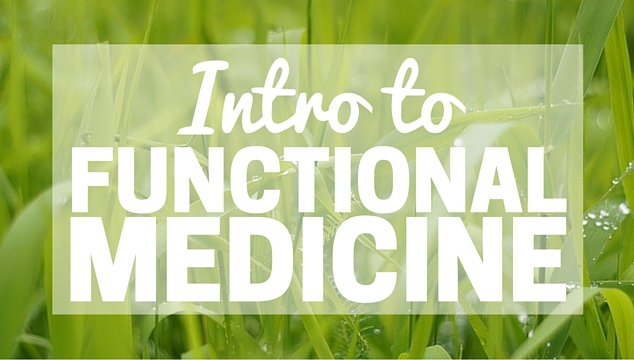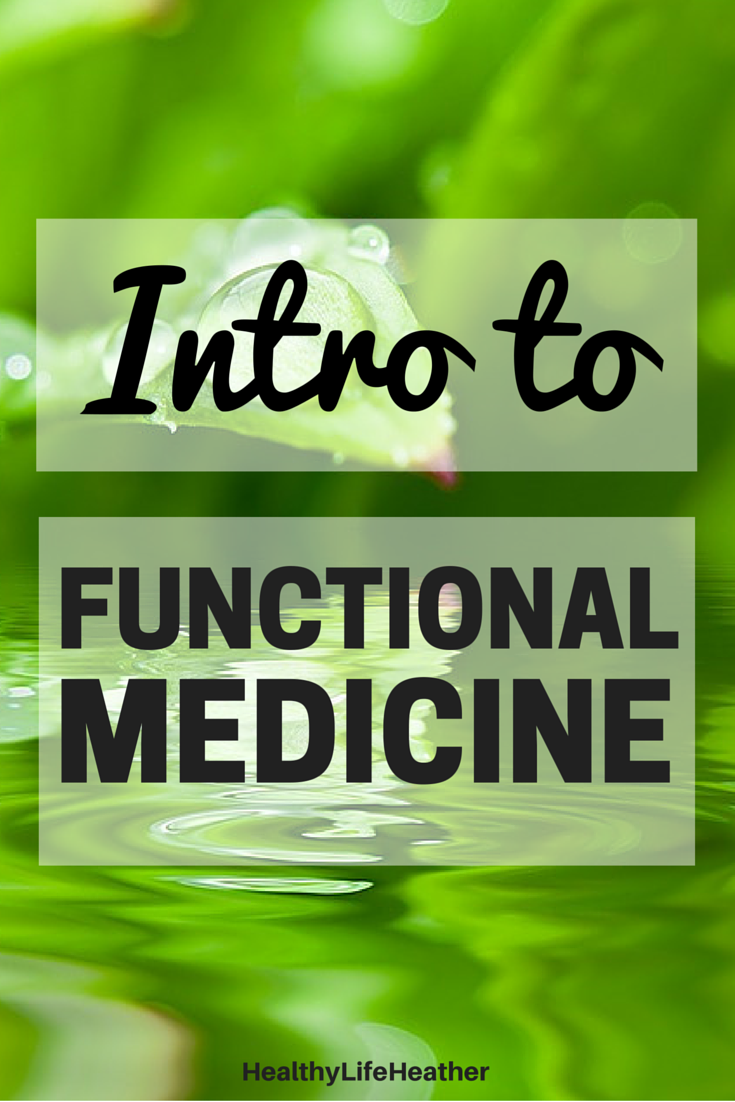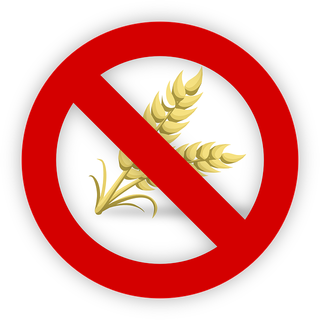Intro to Functional Medicine

In the spring of 2014, I heard a term I’d never heard before – functional medicine.
My digestive health had been on a steady decline for a year and a half, and I was reaching a point where something HAD to change.
I took a few ideas and started researching them online, and it didn’t take long for “digestive health” and “grain-free diet” to pop up together. The more I read about adopting a Paleo-like approach to eating, the more I saw authors and speakers recommend “functional medicine” doctors.
We’ve heard of Western and Alternative Medicine before, but what is Functional Medicine?

What is functional medicine
Functional medicine:
- often combines elements of western/conventional medicine and alternative medicine (providing acute care and a preventative/wellness focus)
- offers a more personal relationship and partnership between practitioner and patient (appointments are longer with ample time for questions and discussion)
- assesses how the different systems within the body are or aren’t functioning properly (and how one may influence the others)
- treats health issues by looking for the underlying causes of symptoms
- focuses on how medicine, food, supplements, exercise, and lifestyle can help us pursue health and wellness
Learn more from the Institute for Functional Medicine.
Why functional medicine
Once the list of food allergies and intolerances started to grow out of control, I couldn’t eat a single meal without feeling miserable. Getting through the day just felt exhausting with all of the uncertainties, and I knew I needed major help.
It seems like many functional medicine practitioners entered the field after having gone through significant health issues themselves. And, they have loads of experience treating patients with digestive/gut health concerns. Experience + empathy sounded like exactly what I wanted from a doctor.
Plus, when it comes to everyday living, I’ve preferred more natural approaches to healthcare since my late teens/early 20s. As a rule, I don’t like taking medication unless necessary. I’m sure there are prescriptions and over-the-counter medications that could mask my digestive health symptoms. However, relief from symptoms doesn’t mean the source of the health problem has gone away. I want to get to the root cause of a health issue and tackle it directly.
My functional medicine experience
In the summer of 2014, when the GAPS diet wasn’t helping as much as I had hoped, I made my first appointment with a functional medicine doctor. For a year, I worked closely with the practice’s two doctors to make changes in my diet, identify helpful nutritional supplements, discuss lifestyle changes, and take tests to help identify underlying causes of my health problems.
While I saw some improvements in that last year, some issues persisted, and Gav and I decided it was time for a second opinion. In the summer of 2015, I scheduled an appointment with a new doctor, and I’m happy to say we’ve made significant progress in the last several months.
Functional medicine: Nutrition

As a whole, functional medicine encourages us to eat real foods, minimize sources of added sugar, and eliminate foods that are causing allergy-like responses. By eating nutrient dense foods and reducing or eliminating problematic foods, we can improve our health both in the short and long term.
A paleo-ish diet is often followed, as it removes grains (which further inflame the gut of us sick folks), processed foods, and excess sugar. I add the “ish”, as people often modify the paleo diet for their unique needs. For me, paleo-ish has meant following paleo guidelines in addition to removing a variety of paleo-friendly foods, which my body hasn’t been responding well to.

Functional medicine helped me identify the foods I was eating that were NOT working for me, even though they’re regarded as healthy. My body was unable to break down some of those foods and digest them properly, leading to a variety of problems. The dysfunction of my small intestines led to developing an allergy-like response to foods I had been consuming for years with no problem.
By working closely with functional medicine practitioners, I’ve been better able to identify which foods are best for my body in the moment, and that list of foods has changed (and improved!) as my health improves.
Functional medicine: Testing
Chris Kresser, one of my favorites in the health and wellness world, likes to say “test, don’t guess”.
While symptoms can help lead to a diagnosis and treatment, many health issues have similar symptoms, so it can be difficult to determine the underlying issue correctly. I strongly believe that a large part of the reason I’ve been struggling for so long is that my symptoms can be attributed to any number of issues. Finding the needle in the haystack is difficult and time consuming.

That’s where fairly comprehensive testing comes into play. My symptoms could point to a general imbalance of gut bacteria (the good and the bad), an overgrowth of bacteria in the small intestines, parasites in the large intestines, heavy metal toxicity, adrenal fatigue, or several other issues. Since these are each treated differently, it’s important to determine which, if any, of these issues are present.
In the last year, I’ve had my fair share of tests.
- 3 different stool tests to look for parasites and other such fun things
- hydrogen breath tests to test for SIBO (both the glucose and lactulose tests to best assess the entire length of the small intestines)
- blood work for IgE food allergies
- comprehensive blood panel for various wellness markers (thyroid, vitamins and minerals, candida, etc)
- 2 different heavy metals (mercury focused) tests
- methylation eval through 23andme.com and blood work to assess “functional methylation”
- organic acids test
- hormone and adrenal fatigue assessment
- and perhaps another 1-2 tests I’m forgetting
- more info on commonly used tests in functional medicine
Although taking this many tests has been costly, I’m more determined than ever to get to the bottom of this mystery. In future posts, I’ll share what I learn from the results, as well as a few of my test-taking experiences.
Functional medicine: Supplements
Though the most frequently asked question is “what CAN you eat?!“, folks also ask what kind of supplements I take and why.
I’m no stranger to taking nutritional supplements. Since my late teens, I’ve taken a supplement or two along with the rest of my family. But there are HUNDREDS if not thousands of supplements one could take, and purchasing more than a few can get quite expensive.
This is where the benefits of working with a skilled practitioner come into play. All of the supplements I’m currently taking were recommended AFTER discussing my health concerns at length with a doctor, reviewing test results, and discussing my progress over the course of several months.
Though I’ll go into more detail in a future post, I’m currently taking supplements to:
- address leaky gut (permeability of the small intestines)
- aid the digestion process (helping my body break down food properly)
- reduce stress, anxiety, and sleep issues
- help the thyroid functional optimally
One important note is that supplements are just that – supplementary. They’re not designed to be a crutch for poor decision making when it comes to taking care of ourselves, but they certainly shine in addressing gaps in health care that we might not be able to fill without them.
Functional medicine: Lifestyle
It’s no secret that stress is related to many health problems. It can be a vicious circle, as stress can lead to health problems, and health problems, in turn, often result in physical, emotional, and financial stress.

One thing I’ve relearned over and over throughout the last year – if you don’t reduce and manage stress, you’ll be limited in how much progress you can make. Or if you’ve made progress, you’re likely to suffer setbacks if you don’t get a handle on stress.
I FULLY admit to not handling stress very well. It’s always been that way! I pick up on and often absorb emotions from others. Over the last few years, between the health issues, challenges for various friends and family, and the emotional, physical, and mental challenges of having chronic health issues, there’s been a lot of stress to wrestle with.
Thankfully I’ve tried some tools to help deal with stress (though I still have a LONG way to go) and I’ll share those in a future post.
What’s next?
I’m writing this at the end of 2015 (literally — it’s the 31st!), and I’m 2 weeks away from wrapping up treatment for 2 conditions that were FINALLY identified in October. HOORAH!
I had planned to take copious notes and blog throughout the treatment process, but work + treatment + life kept the days and weeks full of activity with little time for processing and writing. Now that the this 1st round of treatment is almost complete, I’m ready to reflect, write, and share!
In early 2016, look for more info about my recent diagnoses and how they were treated, healthy and satisfying recipes, and helpful health-promoting resources.
Through food, functional medicine, and faith, we’re solving this health puzzle of mine, one piece at a time. Thanks for following my journey, and don’t hesitate to let me know if I can lend an ear during your own.

So glad you are finally getting some answers and seeing some improvements in your health! I hope things continue to get better from here on out.